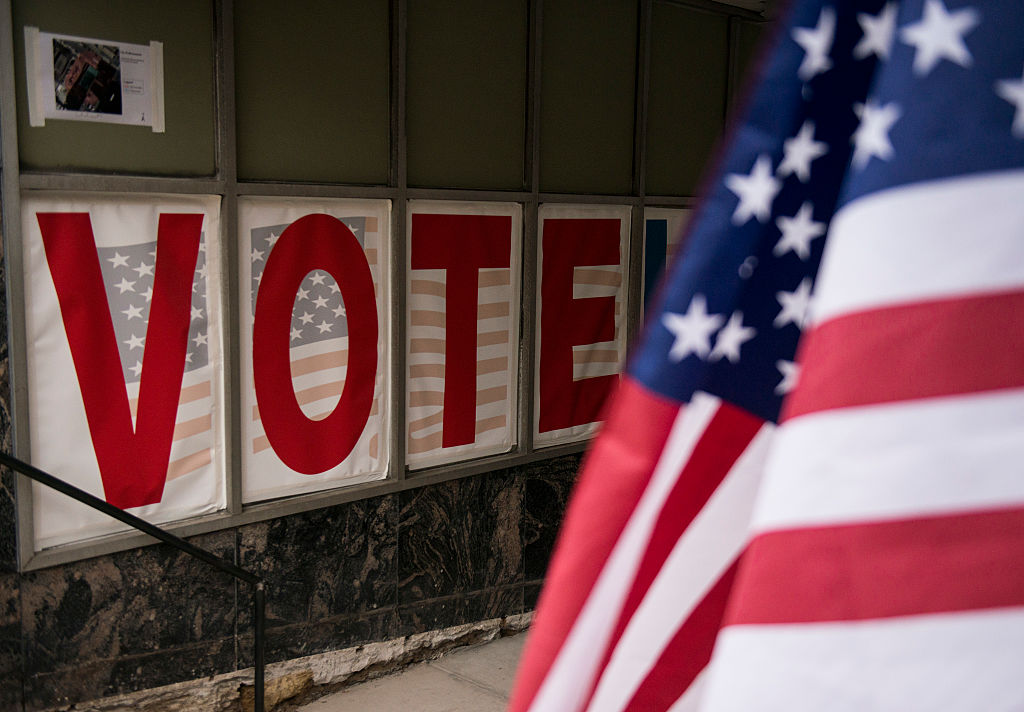Democratic governors press U.S. Senate to act on voting rights legislation

WASHINGTON — Michigan Gov. Gretchen Whitmer and 16 other Democratic governors are urging the U.S. Senate to pass two bills that aim to protect voting rights.
Both measures need 60 votes to advance under Senate rules but have been stalled by Republican opposition in the evenly divided Senate.
“Without decisive action by the federal government this year to protect voters’ access to the ballot and ensure the integrity and transparency of our elections, the voices of Americans across the country, especially Americans of color, will be suppressed,” the governors wrote in a Monday letter to U.S. Senate leadership.
Governors who signed the letter include Jared Polis of Colorado, Tim Walz of Minnesota, Steve Sisolak of Nevada, Phil Murphy of New Jersey, Michelle Lujan Grisham of New Mexico, Roy Cooper of North Carolina, Kate Brown of Oregon, Tom Wolf of Pennsylvania and Tony Evers of Wisconsin, among others.
One bill, known as the John R. Lewis Voting Rights Advancement Act of 2021, would restore the Voting Rights Act of 1965 and require states and localities with a systemic history of crafting discriminatory voting laws to get special pre-clearance by the Justice Department before enacting those laws.
The second bill, known as the Freedom to Vote Act, was introduced in the Senate, and it would prevent gerrymandering, protect poll workers and require all states to offer at least two weeks of early voting, as well as establish a national voting day, among other provisions.
The letter is addressed to Senate Majority Leader Chuck Schumer, a New York Democrat, and Minority Leader Mitch McConnell, a Kentucky Republican. While Schumer has said the Senate will vote again on voting rights legislation, Senate Republicans have repeatedly blocked any voting rights legislation from being debated.
The push for Congress to pass voting rights protection comes as legislators in 48 states have either passed or introduced legislation that would limit voting hours, restrict mail-in voting or reduce polling locations.
The trend followed historic levels of voting in the 2020 presidential election and baseless claims by former President Donald Trump that the election was stolen. Many Republican-controlled state legislatures in reaction introduced strict voter ID laws, raising concerns among Democrats and voting rights advocates.
Experts have also said that the changes to voting laws make it more difficult for rural voters, people of color and those with disabilities to get to the polls. For example, in Iowa and Kansas, someone could face criminal charges for returning a ballot on behalf of a voter who may need assistance, such as a voter with disabilities.
“While we continue to thwart efforts to restrict voting in our respective states, we can’t do it alone and need a federal solution through legislation like the Freedom to Vote Act and the John R. Lewis Voting Rights Advancement Act,” the governors wrote.
So far this year, state Republican legislatures have introduced 389 bills that would limit voting access in some way, according to the Brennan Center for Justice that tracks voting laws across the county.
A handful of states, like Georgia, Texas and Florida, have introduced their own election overhauls that would restrict access to voting. The Justice Department has filed lawsuits in Georgia and Texas over their recently passed voting laws.
The Brennan Center has found that from January to September of this year, 19 states have enacted 33 laws that would make it harder for Americans to vote. Similarly, the Brennan Center has found that at least 25 states have enacted 62 laws that expand the access to vote.
“Even now, legislators in some states are pushing to rewrite election laws — some they themselves passed — simply because they did not like the outcome of the last election,” the governors wrote. “These state-level efforts to limit access to the ballot undermine voting rights and create disparities across the country regarding voting access.”
Both bills currently have no Republican co-sponsors in the Senate.
The Freedom to Vote Act, is a revised voting rights bill by Sen. Amy Klobuchar, the Minnesota Democrat who chairs the Senate Rules Committee, and is the product of months-long negotiations with moderate Sen. Joe Manchin III, (D-W.Va.). Manchin, not wanting to amend the filibuster, has promised to get 10 Republicans to back the bill.
Manchin and Sen. Kyrsten Sinema, (D-Ariz.), have publicly said they won’t kill or amend the filibuster, including for voting rights.
The U.S. House passed its own voting rights bill, 220-210, in March.
“The protection of our nation’s most fundamental right – the right to vote – is not a political issue or a partisan issue,” the governors wrote. “It is an issue of our democracy.”
Comments
Post a Comment